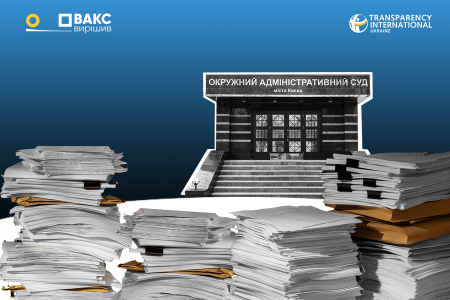On April 9, 2025, the HACC scheduled a hearing in the case commonly referred to as “Rotterdam+.” Notably, this comes eight years after the investigation into the first episode began and nearly three years after the second episode investigation was launched. The first episode was submitted to court in March 2023, meaning that preparations for the trial, including a series of developments surrounding attempts to close the case, have taken more than two years.
What the Rotterdam+ case is about — and why it matters for Ukraine
According to the NABU-SAPO, in 2016, officials of the National Commission for State Regulation of Energy and Public Utilities (the NCREPU), with the assistance of employees from the DTEK group of companies, ensured the adoption of a version of Resolution No. 289 that allowed DTEK to inflate electricity tariffs for consumers.
The resolution introduced a formula for calculating the estimated wholesale price of thermal coal, which factored in the average market price of coal in Europe and the cost of delivery from the ports of Amsterdam, Rotterdam, and Antwerp. This approach gave rise to the name of the case — “Rotterdam+.” The formula included transportation costs for the entire volume of coal used by power plants, even though not all of the coal was imported; a portion was purchased from Ukrainian mines. As a result, the price of domestically sourced coal was artificially inflated by adding logistics costs that were never actually incurred. According to the prosecution, including transport costs in the price of Ukrainian coal was economically unjustified.
This case is significant for Ukraine due to the substantial damage to public and state interests — UAH 39 billion. According to NCREPU, 17.8 million electricity supply contracts were concluded with consumers in 2023. Based on a simplified calculation, this suggests that the average loss per contract could amount to approximately UAH 2,196.
However, the case has faced several challenges: the investigation lasted nearly five years, was repeatedly closed and then reopened, as previously covered in our material. In addition, grounds later emerged to release some of the accused from criminal liability due to the expiration of the statute of limitations. A considerable amount of time was also spent preparing for the trial on the merits, which has yet to begin.
Who is involved and what are the charges?
Defendants in the case:
- Ivan Heliukh, former CEO of DTEK Networks,
- Borys Lisovyi, former adviser of DTEK Skhidenergo,
- Dmytro Vovk, former head of the NCREPU,
- Oksana Kryvenko, former head of the NCREPU,
- Volodymyr Butovskyi, former head of the Energy Market Management Department at NCREPU,
- Taras Revenko, former deputy head of the Energy Market Management Department at NCREPU,
- Volodymyr Yevdokimov, former director of SE “Market Operator”,
- Olena Antonova, Viktoriia Morozova, Ruslan Mashliakivskyi, Oleksandr Formahei, and Dmytro Kovalenko, former members of the NCREPU.
The SAPO also brought charges against former NCREPU members Yurii Holiak and Borys Tsyhanenko; however, both have since been released from criminal liability due to the expiration of the statute of limitations.
Some of the defendants are charged with abuse of power or official position committed by a group of persons acting in prior agreement, while others face charges of official negligence.
When will the trial begin? Why will the case be heard by a single judge instead of a panel?
The trial was scheduled to begin on April 18, 2025, but one of the defense attorneys filed a motion to recuse the judge, which is currently under consideration. The case will be heard on the merits by a single HACC judge.
The defense requested that the case be considered by a panel of judges, but the HACC rejected their arguments, noting that they were based on an arbitrary interpretation of the law. A single-judge trial is the general rule and, in this case, may be more effective than a panel, as it offers the prospect of a faster trial process.
What key decisions has the HACC made during the preparatory proceedings? Which key motions were granted or rejected by the court?
Preparatory proceedings are a stage of the judicial process aimed at organizing the case for consideration on the merits and determining whether it is appropriate to proceed to trial. At this stage, the court may, for example, approve a plea agreement, close the case, or return the indictment if it is found to be deficient. The question of the defendant’s guilt or innocence is not addressed during preparatory proceedings — that is reserved for the substantive stage of the trial.
At the preparatory stage, the HACC issued the following decisions in this case:
- Granted permission to conduct special court proceedings against defendants Vovk and Butovskyi, as the court found they were evading justice and had been declared wanted;
- Released defendants Holiak and Tsyhanenko from criminal liability for official negligence due to the expiration of the statute of limitations;
- Decided to attach motions and statements submitted by the parties to the case file, to be evaluated at the appropriate stages of the court proceedings.
However, HACC judges:
- Did not close the case based on the defense’s arguments regarding the ne bis in idem principle and the expiration of the pre-trial investigation period;
- Did not return the indictments as requested by the defendants;
- Did not leave the civil claims without movement or without consideration;
- Did not recognize Zaporizhzhia Ferroalloy Plant JSC and Nikopol Ferroalloy Plant JSC as victims, and rejected other procedural motions.
At the same time, the HACC partially granted a defense lawyer’s motion to request documents from the Kyiv District Administrative Court — specifically, a copy of the expert opinion resulting from comprehensive forensic commodity and forensic economic examinations.
Let’s take a closer look at the civil claims and the issue of victims in this case.
Who filed civil lawsuits against whom — and for what amounts?
In general, a civil claim in criminal proceedings is filed to ensure that the defendant—or a party bearing civil liability for their actions—compensates the injured party for property damage or moral harm. Such a claim may also be filed by a prosecutor in the interests of the state or, in certain cases, on behalf of individual citizens.
In this case, the civil claim was filed by a SAPO prosecutor in the interests of the state against the civil defendants — DTEK Zakhidenergo LLC, DTEK Energo LLC, DTEK ENERGY B.V., DTEK Dniproenergo LLC, DTEK Skhidenergo LLC — as well as the defendants in the case. The claim seeks compensation for losses inflicted on Ukraine and its people as a result of the offenses allegedly committed by the defendants.
The prosecutor filed two civil lawsuits in separate proceedings, which have since been consolidated for more efficient consideration. The value of the first claim exceeds UAH 19 billion, while the second amounts to more than UAH 20 billion.
Why were the ferroalloy plants not granted victim status by the court?
There were two rather specific victims identified in this criminal proceeding. At the end of 2018, based on reports submitted on behalf of Nikopol Ferroalloy Plant and Zaporizhzhia Ferroalloy Plant under Article 55 of the Criminal Procedure Code of Ukraine, the plants were granted victim status. In 2019, their representative filed civil claims seeking compensation for losses allegedly caused by inflated electricity prices during the period from May 2016 to December 2017. The NABU later reported that the statement of claim had been added to the case file.
On September 21, 2022, the HACC Appeals Chamber noted that although Nikopol and Zaporizhzhia Ferroalloy Plants had sustained property damage, this alone was insufficient to grant them victim status in the proceedings. As a result, on September 22, 2022, the SAPO prosecutor formally refused to recognize the plants as victims. The plants' representative appealed this decision, but the HACC ruled that the prosecutor’s decision was lawful.
In 2023, during the preparatory proceedings, a representative of the ferroalloy plants once again petitioned the HACC to grant them victim status in the case. However, the court again refused, citing, among other reasons, the absence of any new circumstances indicating that the property damage resulted from a criminal offense.
Interestingly, in addition to the examinations initiated by NABU-SAPO, several expert studies were conducted in this criminal proceeding at the request of the defense and the ferroalloy plants. The conclusions of these examinations are contradictory: depending on who commissioned the study, the findings either confirm or deny the existence of losses incurred by the plants.
It is also worth noting that in January of this year, the Nikopol Ferroalloy Plant was transferred to the ARMA. Both plants are part of the Privat Group, associated with Ihor Kolomoiskyi.
What's next?
The HACC will soon begin the trial on the merits, which will involve the examination of documents, interrogation of witnesses and defendants, and review of expert findings. After this stage, along with courtroom debates and the defendants' final statements, the court will be in a position to deliver a verdict and bring the case to a close.
However, the proceedings may be hindered by the expiration of the statute of limitations: it will expire for the first episode (abuse of office) in 2027, while for the second episode (official negligence), it has already lapsed.
Given the volume of case materials and the number of defendants, much will depend on the proper organization of the trial process. Only under such conditions will the public have a real chance to see a judicial assessment of the actions of those involved in this high-profile case and determine whether a crime was committed.


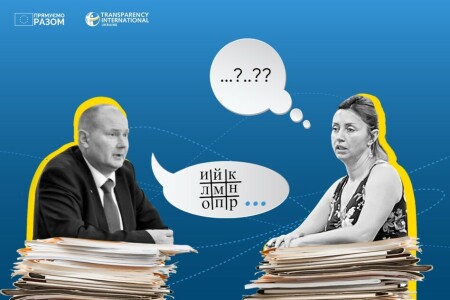
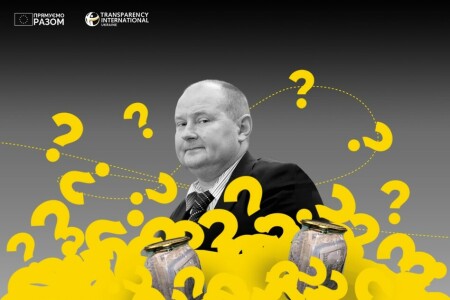
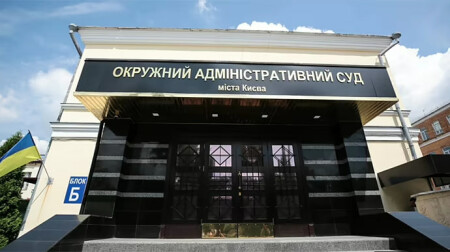
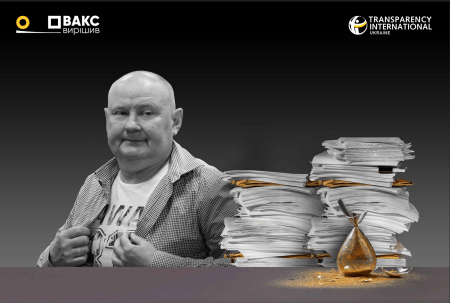

.png)

